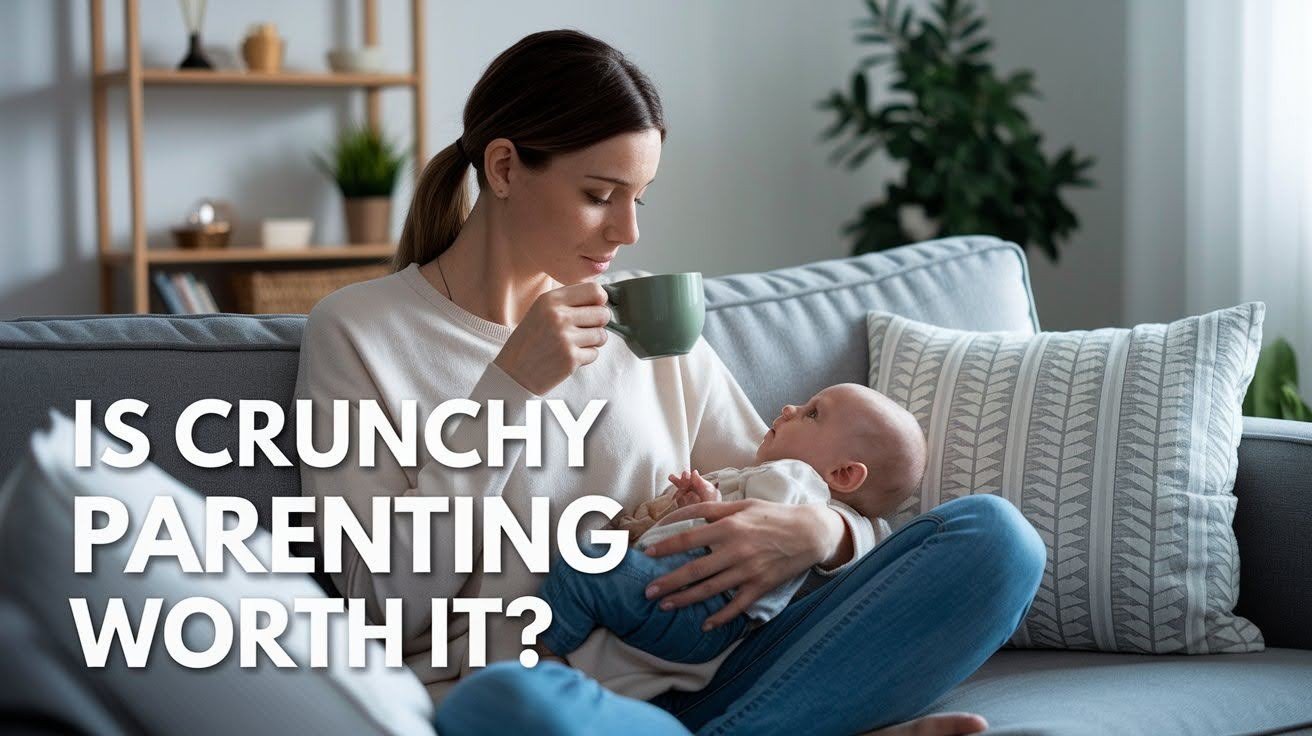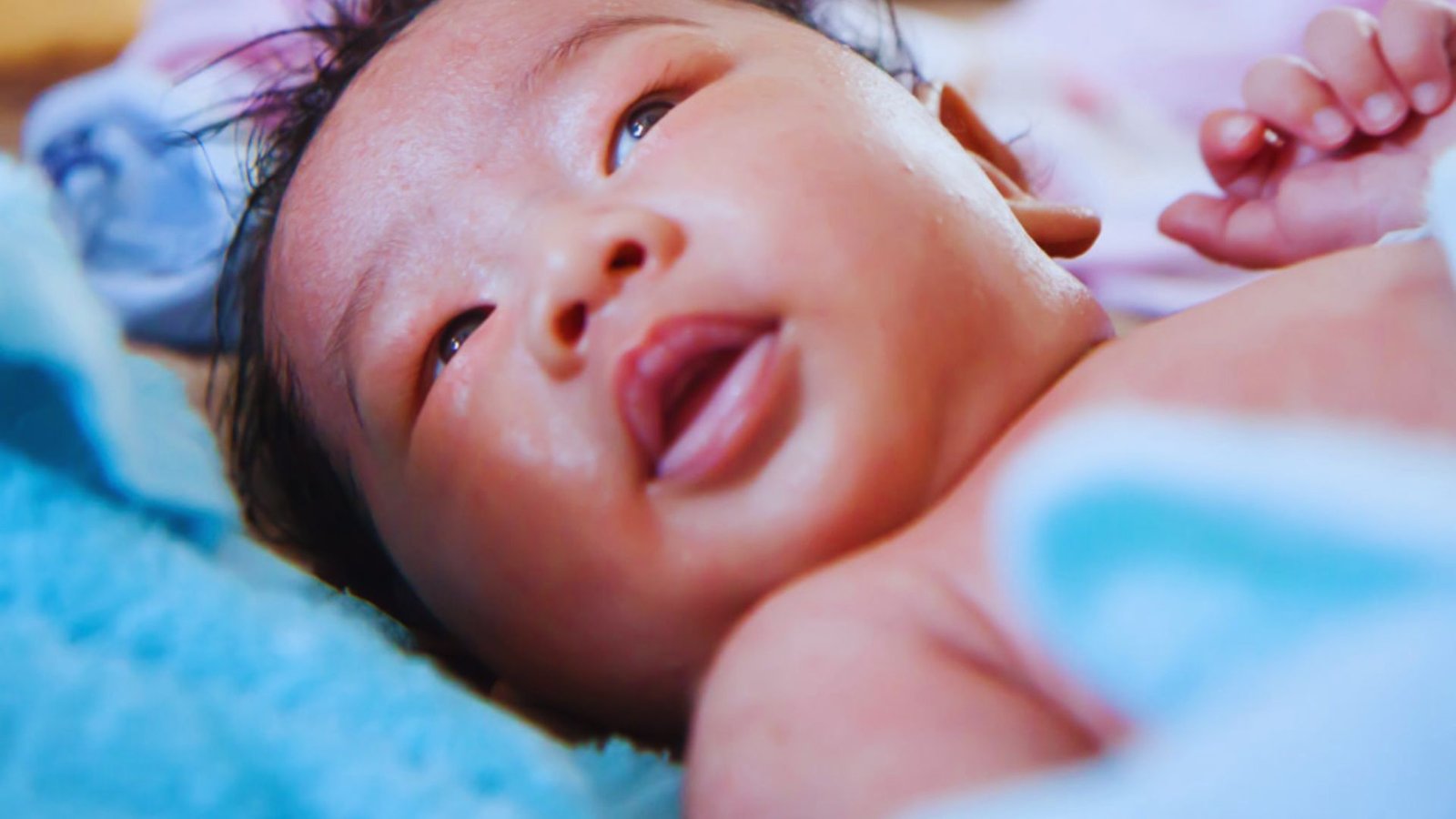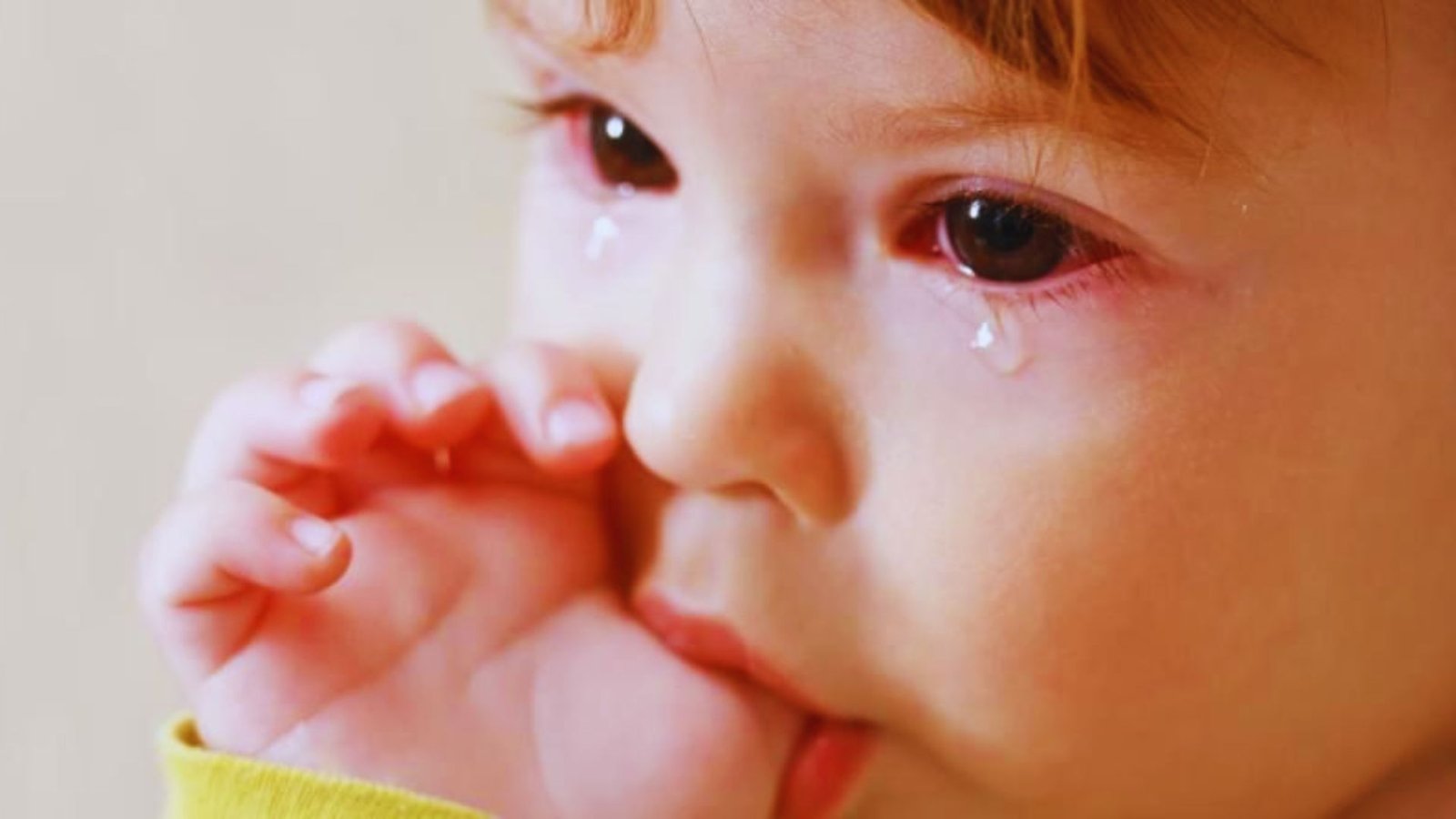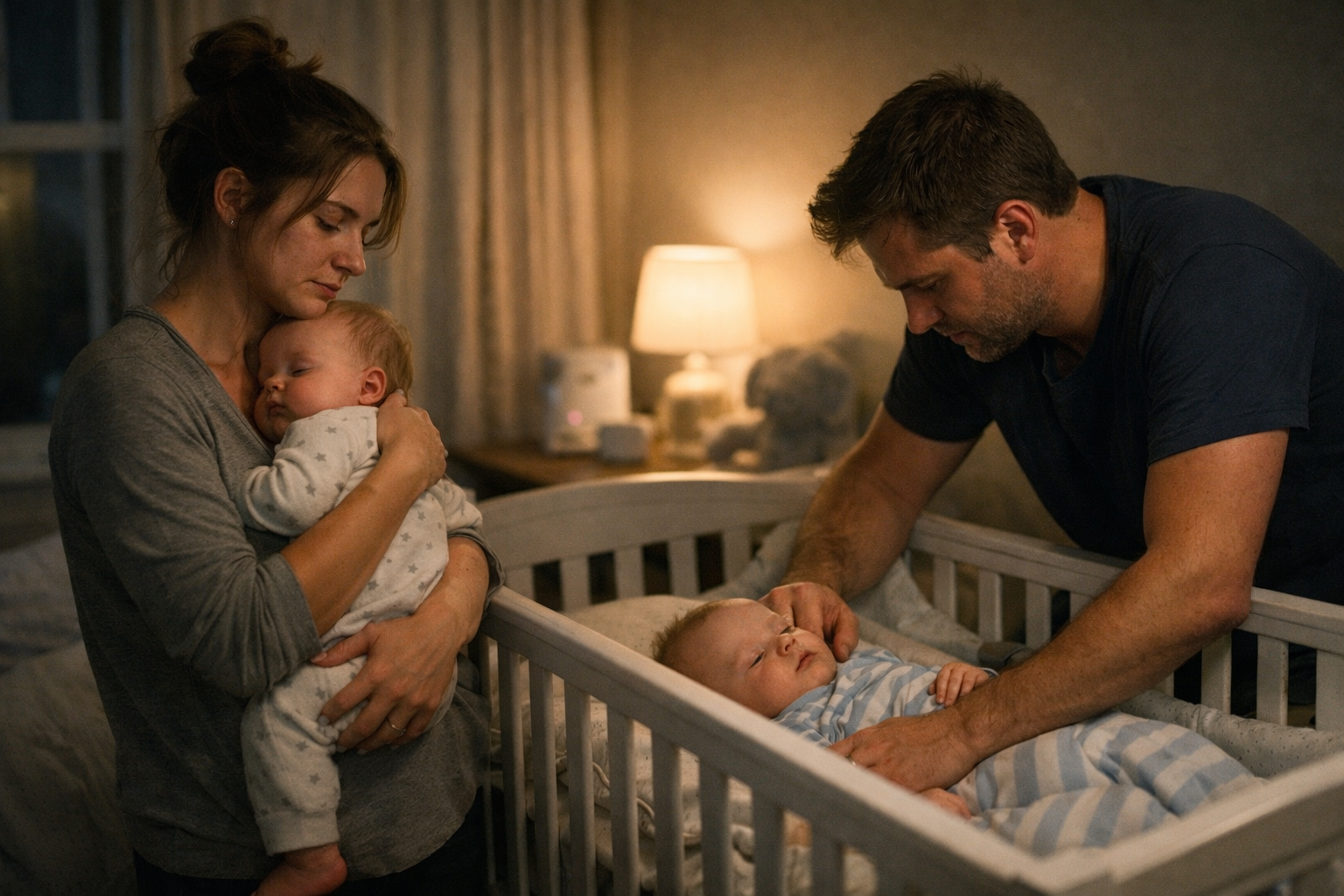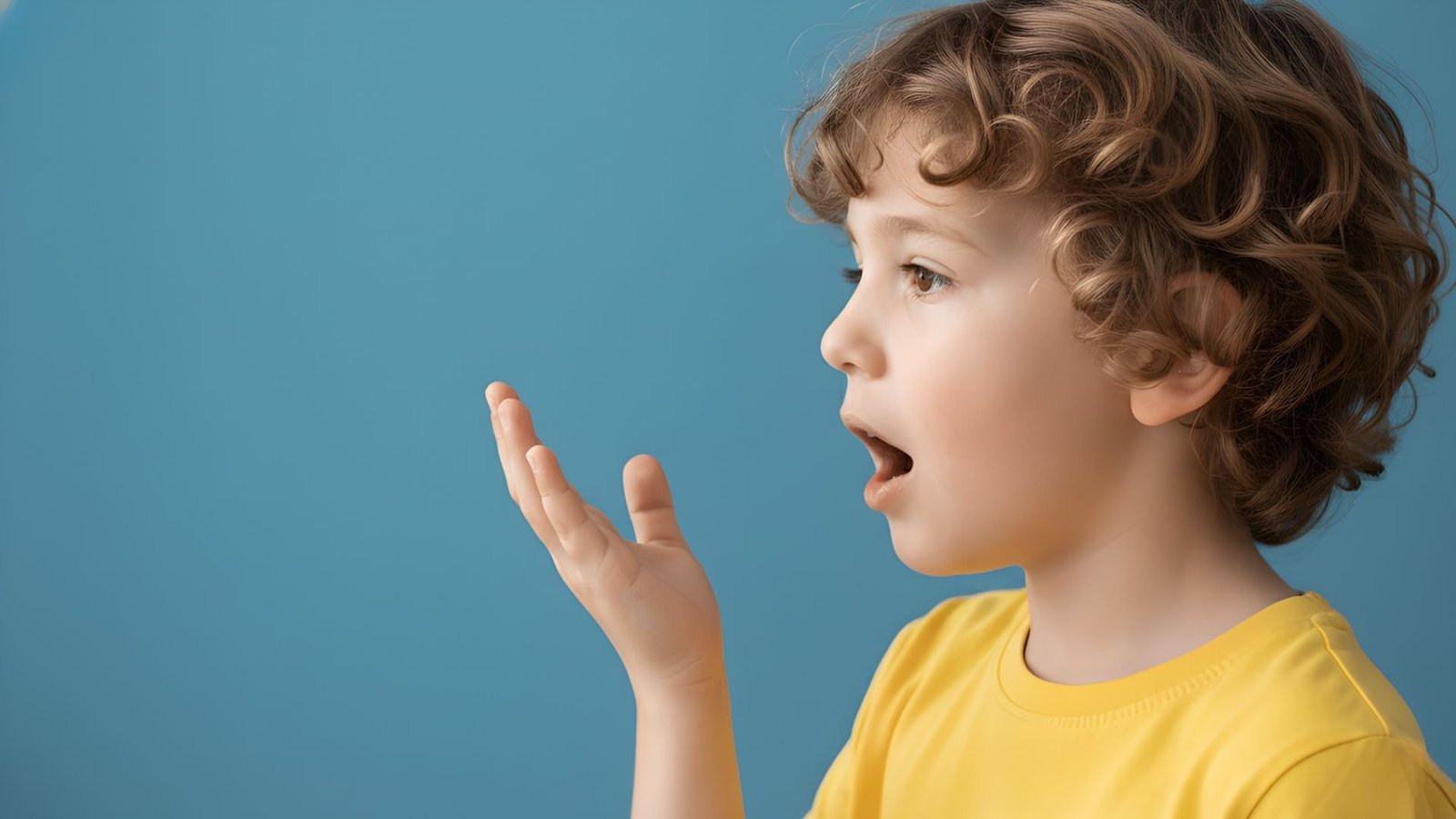You’ve seen them at the grocery store, reading every label. The crunchy parenting world can feel overwhelming.
I’ve researched hundreds of real parent experiences with everything from cloth diapers to essential oils. Some love it. Others burned out completely.
This article gives you the truth about crunchy parenting – what it costs, what works, and whether it’s worth the effort. No judgment, just facts from parents who’ve been there.
You’ll learn what crunchy parenting means, real benefits and drawbacks, and how to find balance for your family. You don’t need to be perfect to be a good parent.
What Is Crunchy Parenting?
Crunchy parenting is a natural approach to raising kids. Parents choose organic foods, cloth diapers, and homemade products over convenient alternatives.
They prefer natural healing methods like essential oils, avoid processed foods and preservatives, and limit screen time significantly.
Attachment parenting practices include extended breastfeeding and co-sleeping. The term comes from crunchy granola foods these families eat, connecting to 1960s hippie parenting styles that became popular again on social media.
Real Parent Experiences and Perspectives

Let me share what actual crunchy parents told me about their experiences. These stories show both the good and challenging parts.
Success Stories from Crunchy Families
Ashley Galik from Illinois has nontoxic swaps for everything. Her family never sleeps and follows Montessori learning at home.
They eat organic and care deeply about what goes in and on their bodies. She says the holistic approach gives her family more control over their health.
Beth from Tennessee grows most of their food and visits local farms. Her family avoids preservatives and convenience options. She believes this makes her child more resourceful and thoughtful about choices.
Evolution of Crunchy Practices Over Time
Most crunchy parents start with research during pregnancy. One mom told me she began on BabyCenter forums and got overwhelmed by extreme advice.
She created her own middle-ground approach that worked better. Over time, she learned to let go of some ideals while keeping core values.
With multiple children, many parents become more flexible. What worked perfectly with one child might not work with another. Experience teaches them to adapt rather than stick rigidly to rules.
The Burnout Factor
Many parents who started strictly crunchy moved to a more balanced approach. The pressure to do everything perfectly can become overwhelming.
Some realize that maintaining every ideal isn’t sustainable long-term. They learn to prioritize which practices matter most to their family.
Finding peace with “good enough” choices becomes important. Perfect, crunchy parenting often leads to stress and guilt rather than the calm, natural life parents hoped for.
Celebrity Examples and Influence
Kourtney Kardashian represents the ultimate crunchy celebrity mom. She practices gentle parenting and co-sleeps with her four children.
TikTok creator @thatcrunchymomkate shows a more balanced approach to crunchy living. Social media can inspire, but also create unrealistic pressure.
The gap between social media posts and real life is huge. Many influencers have access to resources that regular families don’t have access to.
Is Crunchy Parenting Right for Your Family?

After looking at real experiences from dozens of families, here’s what I learned. Crunchy parenting works amazingly for some families and burns out others completely. The key is knowing which category you fall into.
When Crunchy Parenting Makes Sense?
Some families are perfectly set up for the crunchy lifestyle. If you have time to research products and make homemade food, it can be incredibly rewarding.
Parents who genuinely enjoy reading labels and trying natural remedies often thrive with this approach.
Children with allergies or sensitivities often do better with organic foods and natural products. Living near health food stores and farmers’ markets makes the lifestyle much easier, too.
When It Might Not Be the Right Fit?
High-stress families often struggle witcrunchhy demands. Single parents working full-time rarely have the energy to make everything from scratch.
If you live in a food desert with limited organic options, crunchy eating becomes nearly impossible. Some children actually do better with structure and routine than complete freedom.
Families dealing with mental health challenges or financial stress should focus on those priorities first. Adding crunchy pressure can make difficult situations worse.
Finding Your Family’s Sweet Spot
Most successful families pick and choose what works for them. Maybe you buy organic apples but use disposable diapers.
Perhaps you limit screen time but use conventional medicine when needed. Being honest about your limits prevents burnout and guilt.
Quality matters more than quantity. Three sustainable crunchy practices work better than ten that stress you out. Remember that adapting your approach as children grow is completely normal.
The Most Important Truth
Your love and attention matter infinitely more than perfect products. Children need parents who are present and emotionally available.
A calm parent using conventional items beats a stressed parent trying to be perfectly crunchy. Family harmony should always come first.
There’s no award for being the crunchiest parent. Healthy, happy children come from many different parenting styles. Trust yourself to know what works best for your family.
Conclusion
Crunchy parenting isn’t all-or-nothing. After talking to dozens of families, the truth is clear: most successful crunchy parents are actually “scrunchy” – picking what works and letting go of what doesn’t.
You now know what crunchy parenting really involves, the honest costs and benefits, and how to avoid burnout. The best approach is the one that fits your family’s needs and resources.
Your children need your love and attention more than perfect organic everything. Start small if crunchy practices appeal to you, but don’t let them add stress to your life.
What crunchy practices interest you most? Share your thoughts in the comments – your experience might help another parent find their balance.
Frequently Asked Questions
What exactly is crunchy parenting?
Crunchy parenting is a natural approach that focuses on organic foods, non-toxic products, and traditional methods over modern conveniences. Parents often use cloth diapers, make homemade baby food, limit screen time, and prefer natural remedies over conventional medicine when possible.
Is crunchy parenting more expensive than regular parenting?
Yes, organic foods typically cost 20-40% more than conventional options, and natural products often have higher price tags. However, some practices like cloth diapers and homemade cleaning supplies can save money long-term despite higher upfront costs.
Do I have to follow all crunchy practices to be considered crunchy?
Not at all. Most successful crunchy parents are actually “scrunchy” – they pick and choose practices that work for their family. You might buy organic produce but use disposable diapers, or limit screen time but use conventional medicine.
Will crunchy parenting make my children healthier?
Some crunchy practices like organic foods and reduced chemical exposure may have health benefits, but there’s no guarantee of better health outcomes. Children’s well-being depends more on consistent love, attention, and overall lifestyle than perfect adherence to natural products.
How do I start crunchy parenting without getting overwhelmed?
Start with one area that interests you most, like switching to organic produce or making homemade baby food. Build gradually rather than changing everything at once. Focus on practices that feel manageable and align with your family’s values and resources.

